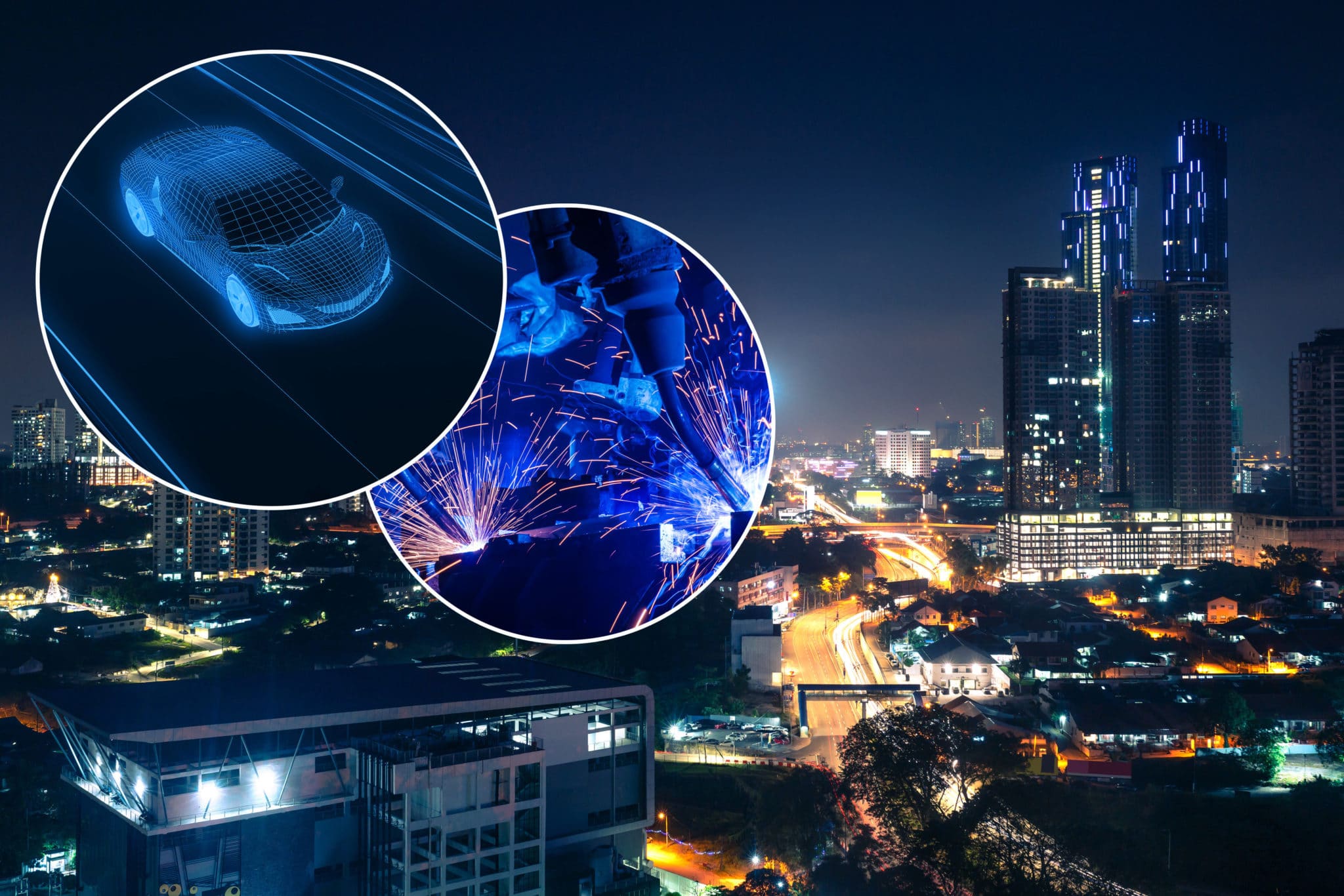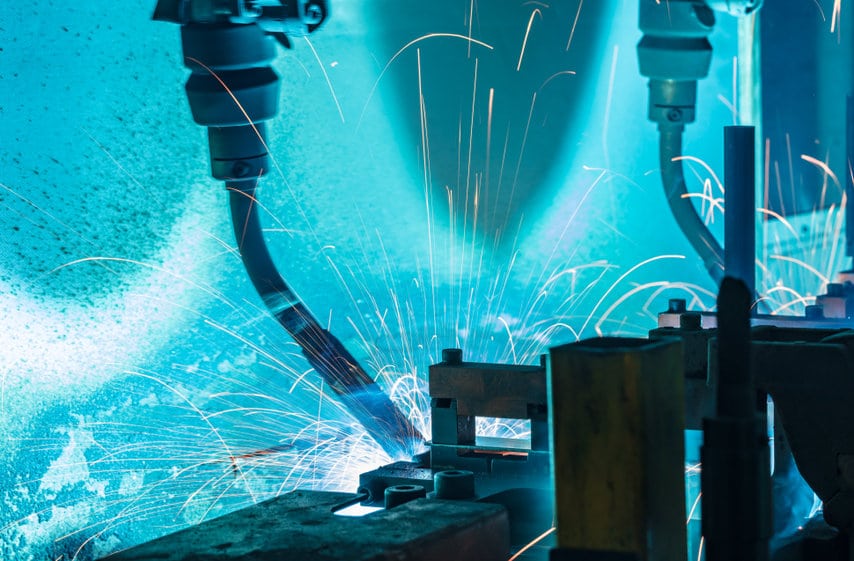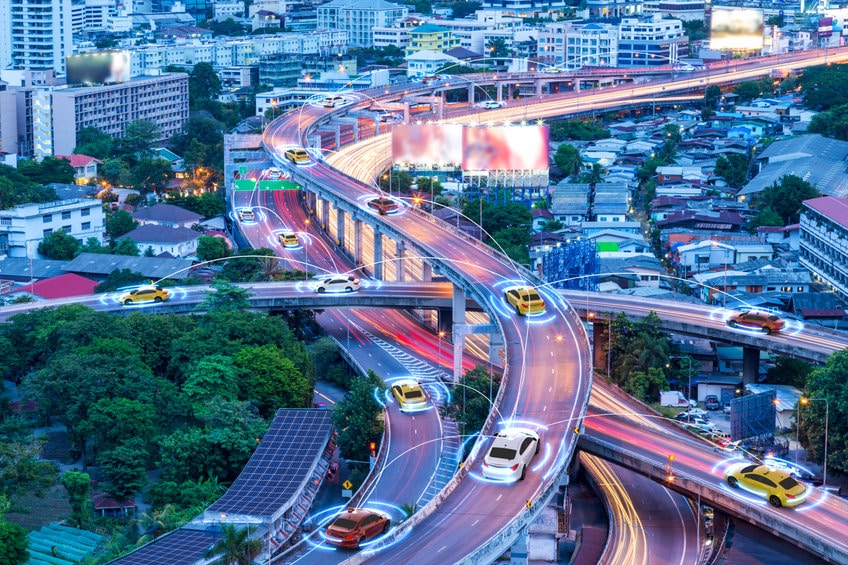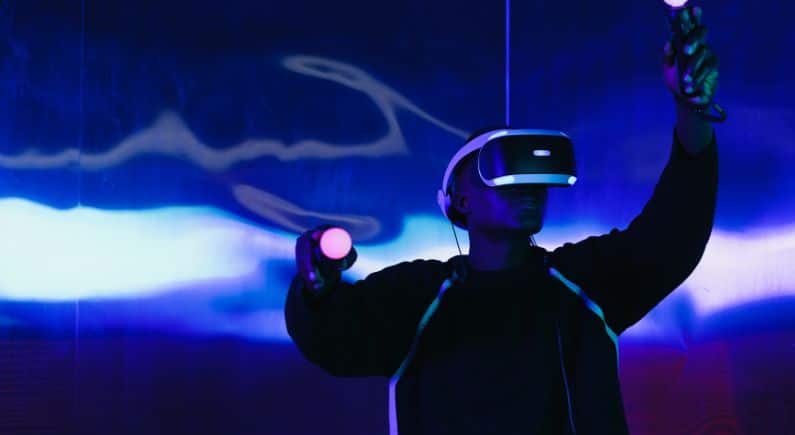“In 2029, you may not have an ordinary job.” The world in 2029 with Lars Rinnan

Bringing the first day of AIBC Europe’s panels on Decentralized Finance and Emerging Tech to a close, CEO of Amesti Next Bridge Lars Rinnan opens up with the question on whether we’ll be going to rock concerts staffed with robots in 2029.
Dissuading any fears of a human-free future, Lars elaborates that the need for human connection will always be at the core of society with avid metalheads fawning over flesh and blood rock stars. This being said, the world of 2029 will be quite different from what we are used to today. “In 2029, you may not have an ordinary job, you certainly won’t own a car and the hamburger you’d be eating may be made from lab grown meat” Lars speculates. The keynote then strikes a more undeniably positive chord as “the world in 2029 will not have poverty, pollution, famine or disease either.”
Elaborating on his choice in date, Lars notes how 2029 will be a very important milestone in the potential future of mankind as it is the timeframe experts currently believe that a lower-end computer would have the same computational power as the human brain. This would open up the possibility for synthetic beings to do any cognitive task traditionally the domain of humanity and potentially even surpass our capabilities.
On the topic of automation, the year 2029 will see half of the contemporary job market left to advanced robotics and artificial intelligences. Rather than mourn this redundancy, Lars argues that we should celebrate the fact that all the boring and life-threatening jobs will be removed whereas mankind as a whole reaps the rewards of improved productivity. The jobs that would remain in 2029 would be heavily augmented with cutting edge technology such VR and drones. Lars even argues that we may benefit from the fact that the precision of future surgeons would being enhanced by VR goggles or that the architects of the future would use sophisticated AI to model the structural integrity of a building far before it even left the planning stage, quite literally building the foundations of the future on more solid foundations.

Many are afraid of being made redundant by the oncoming revolution in robotics but this doesn’t mean that good policy can’t fill the gap left by AI. Whereas traditional employment in many sectors may disappear completely, people may find themselves liberated rather than left behind through the establishment of UBI, or Universal Basic Income, where every individual is guaranteed enough money to cover living expenses. This would be financed by the taxation of hyper-productive industries and would ensure a more equitable society, possibly even more equitable than the economic system we find ourselves in today. With the layman being liberated from the necessity of labour, we may see the most creative society ever in history.
On how urban society will evolve, Lars picks three areas that are extremely liable to be disrupted with these being transportation, farming and energy production. These same three areas amount to 66 percent of CO2 emissions today and an overhaul in these sectors would contribute overwhelmingly towards a greener ecosystem. Lars posits that the transportation of the future may be autonomous and based on a subscription service rather than on private ownership. Energy would mainly be derived from renewable sources with the overhauled infrastructure allowing redundant car parks to be transformed into much more useful structures such as parks, recreational areas or even vertical farms. This led him to the topic of farming, which he argues would be spearheaded by advances in artificial meat and more advanced methods of agriculture such as vertical farming or hydroponics. Not only would the food of the future be cheaper due to the efficiency of the process but also much healthier as foodstuffs could be fortified with nutrients and minerals. Lars shed light on the fact that hydroponics uses 99 percent less soil, 90 percent less water and can be performed without the need for pesticides whilst being 300 percent more efficient.

The keynote concludes with a final glance at disease and the future of healthcare. In comparison to today’s focus on reactive healthcare, Lars posits that the healthcare of tomorrow will be proactive with medical technology leading the way in annulling potentially life threatening issues before they even arise through sensors and nanotechnology.
While some of these claims may seem ambitious, especially taking into consideration the timeframe, Lars points to the exponential nature of technological advancement with computational power doubling every 18 months and 3D printing going from its humble origins to the contemporary ability to 3D print houses, organs and food. With this in mind, a brighter future may be coming sooner than you’d think.
The AIBC Europe Summit ran from the 16th to the 18th of November, 2021, at the MFCC, Ta’ Qali, Malta as part of Malta Week.






